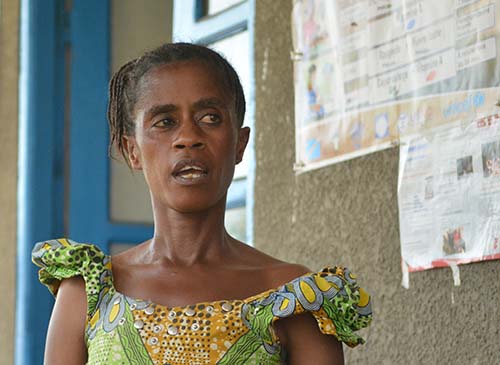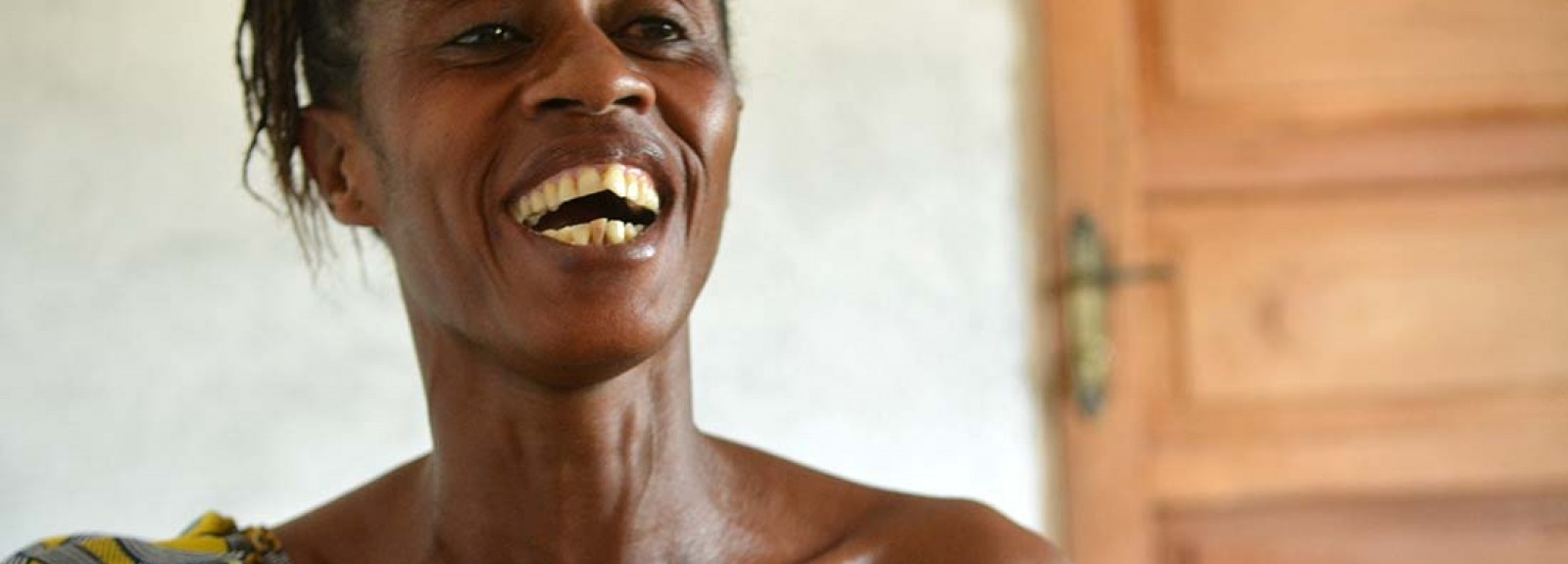IMA World Health/Emily Esworthy
J
osephine Namba Balikwisha used to make as much money in six days as her neighbors would make in a year. As the owner of a popular brothel in the Bulongo village of Eastern Congo, for more than seven years she sold alcohol and sex at prices that made her one of the wealthiest people in her community. At one time, she employed as many as 60 women and girls, not thinking twice about their age, old or young.
Then the USAID-funded USHINDI Project, led by IMA World Health, came to town. Promoting equality, health, and empowerment for women, the holistic program works to prevent sexual and violence against women and girls and support survivors in 10 health zones in the eastern regions of the DR Congo.
Being a shrewd businesswoman, Josephine jumped at the chance to join the noyaux, a community-based group that spreads USHINDI messages and activities throughout the village. It took a month of involvement for her to realize she was a part of the problem. While her business gave her personal wealth and power, she had never recognized how it violated the rights of other women.
She knew she was giving up a lucrative life and making an unpopular decision among her many male patrons, but Josephine soon stopped arranging sex transactions and began escorting minors from the brothel back to their families herself. She also stopped selling alcohol, recognizing that it increased aggressive behavior, conflict, and the demand for commercial sex. Even Josephine’s own children questioned her decision at first, but she stood firm.

Downloads
View the USHINDI and Women’s Leadership Annual Report (Year 4) here.
“USHINDI freed me from the bad air I was living in. Even though I lost my high income, my spirit feels calm and I feel strong. Everyone calls me the USHINDI Woman,” she says proudly.
A natural leader, Josephine has become a community mobilizer for USHINDI and one of the biggest champions for women’s rights, women’s empowerment, and conflict management among couples and families in Bulongo. Once or twice another madame has tried to open a new brothel, and she has taken the lead in confronting them and convincing them to reconsider.
She says, “People now come to me for advice. I feel like the village chief… Before USHINDI, women couldn’t {take on a leadership role} like this. The women’s empowerment focus of USHINDI has made this possible.”
Through USHINDI, Josephine has traded one form of power for another–one that allows her to empower others instead of exploiting them; one that brings her a peace she can share with others.
The USHINDI Project is a five-year (2010-2015) USAID-funded project that uses a holistic approach integrating medical, legal, psychosocial, and economic support services to survivors and those affected byviolence against women and girlsin 10 health zones in the eastern regions of the DR Congo. USHINDI is managed by IMA World Health, and implementing partners include Program for the Promotion of Primary Health Care (PPSSP), HEAL Africa, and the Panzi Foundation. Technical partners include the American Bar Association Rule of Law Initiative, Save the Children, CARE, and Children’s Voice.


